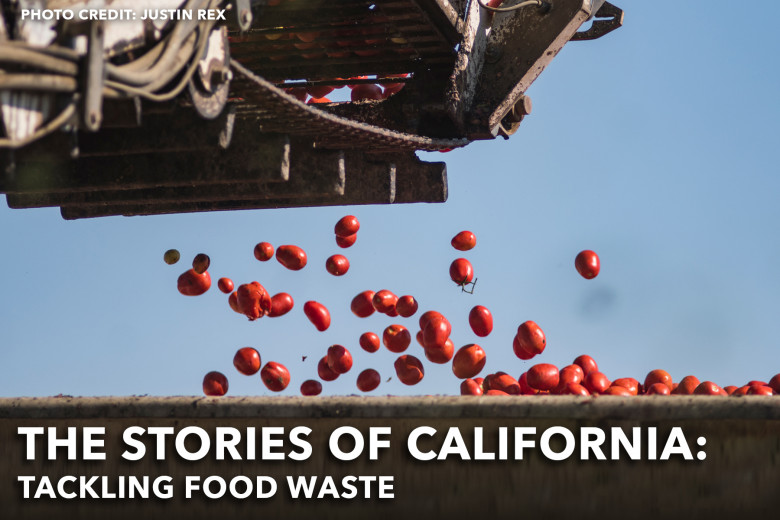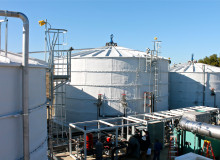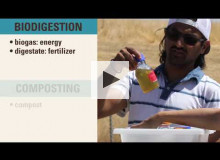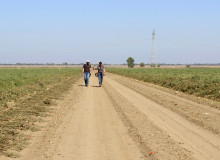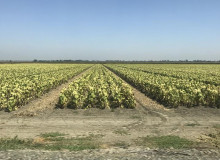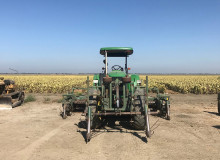In late summer 2018, 11 students from 11 different universities traveled with Planet Forward to Woodland, California, for a storytelling expedition about food waste reduction.
You may have heard the Food and Agriculture Organization statistic that roughly one third of the food produced in the world for human consumption every year — approximately 1.3 billion tons — gets lost or wasted. But did you know the FAO also reports that fruits and vegetables have the highest waste rates of any food? Or that consumers in rich countries waste almost as much food as the entire net food production of sub-Saharan Africa?
It's obvious that if we want to feed the planet, we need to find solutions to food waste in every step of the food production process, from grower to consumer.
On this trip, Planet Forward students visited a tomato production plant, a research farm, and a university market garden and biodigester. We focused more on the production and retail level of food waste reduction since we, as consumers, have more control over our own food usage or waste. But when it comes to big — and small — agriculture? We wanted to learn, and share, what the industry is doing in this area — and give the Planet Forward audience an inside look at the industry that is feeding the world.
So why tomatoes? Tomatoes are a $1.05 billion industry in California and was one of the top-10 producing commodities of 2017, according to the California Department of Food and Agriculture (CDFA).
Connecting the dots from seed to can of tomatoes, was one of our goals. (Hint: It involves a LOT of people!)
In a recent press release, CDFA Secretary Karen Ross said, “Throughout California we have amazing stories of local farmers and ranchers using innovation and technology to increase their connection to consumers. ...
"Farm to fork has engaged consumers like never before...”
We learned this desire to discover where our food comes from, and consumer demand for specific products and types of products, has a powerful impact on what seeds are developed each season, what is grown, and where these food items eventually are sold.
The stories from our trip are told by students with diverse backgrounds — some who had never even been to California, let alone on a large-scale production farm. And we cover everything from the challenges of sustainable food production and food waste reduction in communities to improving ag industry communication with consumers and whether GMOs can help create sustainable food systems.
We hope you enjoy these stories. Please give your favorites a "thumbs up" and share on social media!
While you're on Instagram, please check out our Instastories from the trip, led by Planet Forward Senior Correspondent Katherine Baker.
—
Editor's note: This series on food waste is generously sponsored by Bayer. All editorial content is created independently. To discover more experiential learning opportunities, email editor@planetforward.org.

